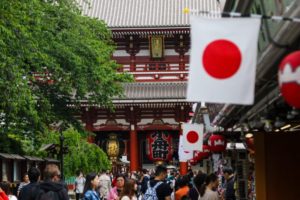Current situation of flexible work style in Japan
What is flexible work (フレックス)anyways?
Have you ever heard of the term “flexible hours?” or “フレックス制度”? According to the Ministry of Health, Labour and Welfare, the definition of the term “flexible hour” is as follows.
Under the flextime system, the total amount of working hours (total working hours) is determined in advance, and the workers can freely decide their daily arrival and departure times and the length of their working day.
For workers, this means that they can freely allocate the limited resource of time to their private and professional lives according to their daily circumstances.
Generally, even in companies that implement flexible work hours, the work hour isn’t actually completely flexible. This is because if most people work from 9:00 AM to 6:00 PM, and someone decides to work from 6:00 PM to 3:00 AM, it is almost impossible to communicate without any delays.
Therefore, most companies implement something called the “core time”, or “コアタイム” alongside flexible work hours. If the company has a set core time, then that means you will have to be working during that time. For example, if the company decided that the core time is from 10:00 AM to 2:00 PM, then you must work during that time. In this case, you are allowed to schedule your work hours to something like 6:30 AM to 3:30 PM and 10:00 AM to 7:00 PM.
Usually, it is listed on the recruitment application page, whether they have a set core time or not. Before you jump into the company thinking that they have flexible work hours, you should definitely double-check the notification of acceptance and see if it says anything about core time.
Do Japanese companies allow employees to adjust their work schedules?
A lot of you may have wondered if Japanese companies accept flexible hours. The quick answer is no, especially in traditional Japanese companies. A lot of companies in Japan, don’t have a total compensation system. They usually pay according to the hours you worked, and pay extra for overtime work. In companies that have a set annual salary (total compensation), then it doesn’t really matter what time you work from because your salary is already decided. However, if the company pays according to the hour then it will be extremely difficult to calculate the work hours and thus makes it hard to implement flexible hours.
However, some Japanese companies are trying to implementing this system because it can be an appeal point to candidates. According to data by Gender Equality Bureau Cabinet Office, the percentage of companies implementing flexible hours in Japan was as follows.
Percentage of Japanese companies implementing flex work
Companies with 1,000 or more employees: 21.7%.
Companies with 300 to 999 employees: 13.2%.
Companies with 100 to 299 employees: 6.9%.
Companies with 30 to 99 employees: 2.2%.
However, this data is from 2015, and the situation might be different in 2021. Especially, after the outbreak of the coronavirus, and remote work became more popular in Japan, the percentage of Japanese companies implementing flex work may be higher now.
You can see from this data that, there are not a lot of companies in Japan that implement flexible work hours. Even if they do implement this system, employees may be hesitant to fully utilize this system. If your peers or boss all worked during the same time period, it might be hard for someone to come into the office later than others in reality.

How to find companies that allow flexible work hours
These are the categories you should be looking for
Now that you’ve learned that there aren’t a lot of companies in Japan, that implements the flexible work hour, it’s time to learn how to find the companies that do implement this system. The easiest way is to look into foreign companies that are located in Japan. In most cases, foreign companies are more willing to allow employees to work flexibly. We wrote about the working style of foreign companies in our previous article. If you are interested in learning more, please check out this article. (Difference between Japanese and foreign company in Japan (外資, Gaishi) and Working at a foreign company in Japan. Reality of working at a Gaishi (外資). )
Some startups also allow employees to work flexibly. Usually, in a startup, they don’t have strict internal rules for how a employee should work. A startup expects its employees to work in a way that allows them to get the most out of their work. Therefore, most seed phase or any early phase startup will allow you to work flexibly. (Although, this does not mean that you will have good work life balance. Typically, in an early phase startup, most employees will work pretty much in most of their waking hours.)
Other tips you should know for working flexibly
If you are not interested in foreign companies or an early phase startup, you might look into Japanese companies that allow remote work. Typically, if a company allows you to work remotely, you will most likely be a ble to work remotely. However, it is hard to know if a company allows you to work remotely or not until you actually join the company. Therefore, you should look for reviews online, or ask people who actually work at the company you are interested in.
Another tip on how you can find companies that allows you to work flexibly is to apply to a specific role which has a high chance of allowing flex hours. For example, a lot of companies accept software engineers to work flexibly. There is a massive shortage for supply of good software engineers, and a lot of companies are trying to appeal how good their work environment is in order to have more engineers applying to the company. Other positions may have a special flexible work system depending on the company as well.

The work environment is changing rapidly in Japan
More and more companies are implementing flexible hours
In this article, we have explained about the current situation of flexible hours in Japanese companies, and how you can look for companies that allows you to work flexibly in Japan. With the prolonging effect of the coronavirus outbreak, it seems that a lot of companies are working on drastically changing their work environment. In the near future, there might be more options for those who are looking for a workplace which allows employees to work flexibly.












